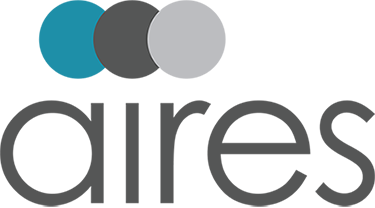I was recently invited to Amsterdam for a meeting and after 16 months of very limited and local travel, the thought of traveling internationally was initially very daunting. However, after some additional research and execution, the trip was a success.
As a salesperson, I have done my fair share of traveling both domestically and internationally. Like many who have traveled for business (or pleasure), I have encountered travel delays, canceled flights, and inclement weather. For all travelers, these are sometimes things that we have to work with and adapt to. While some may think that the new COVID-19 regulations for travel are hassles, I disagree. With proper planning and execution, the extra guidelines are worth it. Here are some tips for you as you begin to travel internationally again in the era of COVID-19 that I learned while navigating this process for myself.
- Don’t Travel If You’re Feeling Under the Weather. This one is self-explanatory. If you are feeling ill, it’s best to reconsider your travel.
- Research the COVID-19 Documentation Requirements by Airline. While the U.S. Centers for Disease Control (CDC) offers guidance for vaccinated versus non-vaccinated individuals for travel, it is a good idea to check with your airline for the specifics that pertain to your particular city or country. When traveling internationally and returning to the U.S., federal regulations include proof of a negative COVID-19 test three days before departure or other documents depending on your situation (e.g., recovering from COVID-19). Research in advance and prepare to bring some extra paperwork with you.
- Prepare to Receive a COVID-19 Test Before and After Your Trip. Some countries are currently mandating proof of a negative COVID-19 test if you are traveling from “an area of particular concern” or one with a high-risk variant of concern. Currently, the U.S. mandates that you are required to show a negative COVID-19 test result or documentation of recovery from COVID-19 before boarding a flight to the United States. If returning from another country, this test must be done no more than 3 days in advance. These guidelines vary by country and can be quickly obtained in an online search.
- Bring Extra Masks. The airport and flights in both the U.S. and Amsterdam required masks at all times (unless actively eating or drinking). Similarly, while some car-share and taxi services in the U.S. have optional mask mandates, Amsterdam has a stringent policy about wearing masks in all of their cabs and car-shares. My recommendation is to look up where you are going and plan accordingly. When in doubt, bring those extra masks.
- Know Your Country’s Quarantine Expectations. Currently, the CDC recommends self-quarantine for 7 days with a negative test or ten days if you are not fully vaccinated upon return to the U.S. For fully vaccinated travelers, there is currently no recommendation for self-quarantine, but it is advisable to use your best judgment for your health and the health of those around you. In some countries, you must quarantine upon arrival. Research this beforehand so you are fully prepared and can make the necessary adjustments to your schedule.
- Prepare for Socially Distanced Meetings. After a year and a half of not seeing some of my colleagues and friends, I wanted to go in for a hug! With social distancing and other precautionary practices in play, this wasn’t possible. It was still very nice to meet in person even if it was with six feet of distance between us and extra hand sanitizer.
- Remain Calm. It might be a little strange to set out on a long-distance flight after keeping your trips close to home, but fret not; following the guidelines set out by country will ensure that you have a safe and hassle-free flight experience while doing your part to help stop the spread of COVID-19.
My experience as a fully vaccinated traveler from the U.S. varied greatly from my colleague from the UK, EMEA Regional Operations Manager Andy Meadowcroft, who met us in Amsterdam. While I had just a few extra steps to complete, he was required to include time for specific COVID-19 tests and documentation from the Netherlands’ government to receive access into the country. While many would have shied away from travel due to all of the various regulations, Andy put it best, “Yes, I needed to invest more time and be prepared for more potential time spent navigating some of the ever-changing nuances, but this is a skillset we should practice more: anticipating what can go wrong and have a solution versus assuming everything will go without delay and not have a solution if it does not.”


